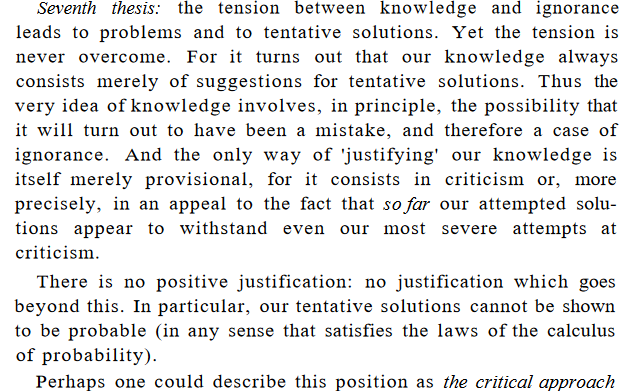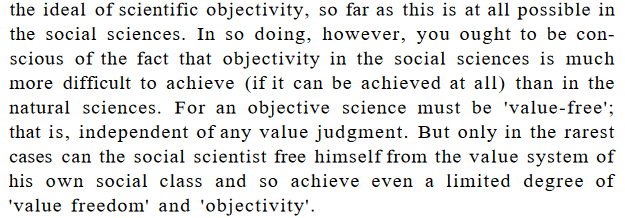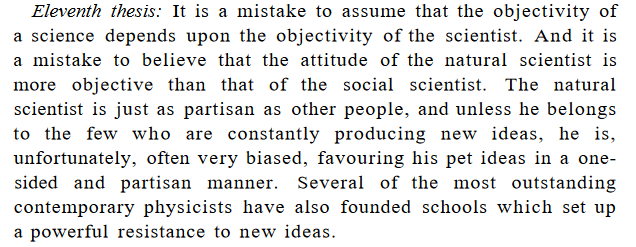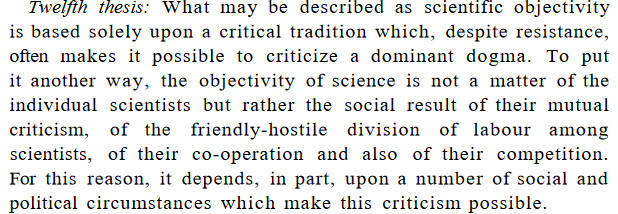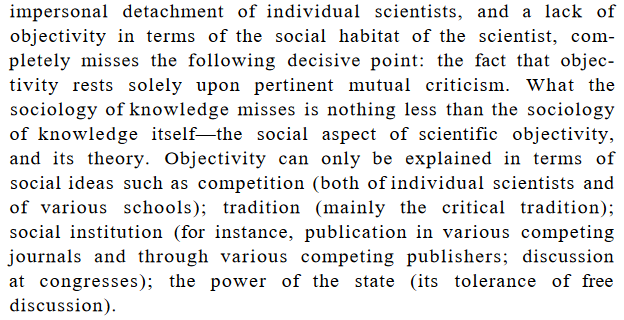A short thread on Popper& #39;s most mature ideas on objectivity, w/ particular focus on the social sciences (mostly for future reference). First a recap on the fallibility of knowledge and severe testing/criticism as the only viable method of justification 1/n
On why the previously depicted understanding of objectivity /the right scientific method does not apply to natural sciences either 4/n
Now his positive thesis: objectivity is not to be looked for in the motivations/practices of the individual scientist, but in the method as it is rooted in the social context of criticism (first part) 5/n
His positive thesis, part 2: objectivity is achieved through division of labor, cooperation and competition 6/n
complementing the last one: Objectivity does not require certain "right" motivations or the lack thereof on the part of the scientist, such as impersonal detachment. It depends on competition, a critical tradition, and a suitable institutional background 7/n
And then he reformulates falsificationist hypothetico-deductivism as the logical tool of criticism 8/n
Why do we work with theories? Because only theories (as deductive systems) can be rationally criticised. 10/n
Truth is a regulative idea: We have to have a concept of truth (i.e. it cannot be reduced to some pragmatic substitute), but it does not apply to theoretical claims. 11/n
Falsificationism is (the only possible) objective method, because we can neither prove theories nor demonstrate their likelihood - we can only criticize them rationally 12/n
What I find interesting in all this is that he seems to have improved a lot on a potential tension in his earlier philosophy. He assumed in The Logic of Scientific Discovery and other works that science is the business of daredevil characters who can stomach uncertainty 13/n
While this might apply to some aspects of scientific practice, it was (I think) in tension with his criterion of intersubjective testibility as the hallmark of statements that pertain to rational scientific inquiry. 14/n
Now he emphasizes not individual character, but the social process as the determinant factor, so objectivity finally finds its rightful place - not in people but between people. (This interestingly also reminds of Peirce, unlike Popper the younger) 15/15

 Read on Twitter
Read on Twitter